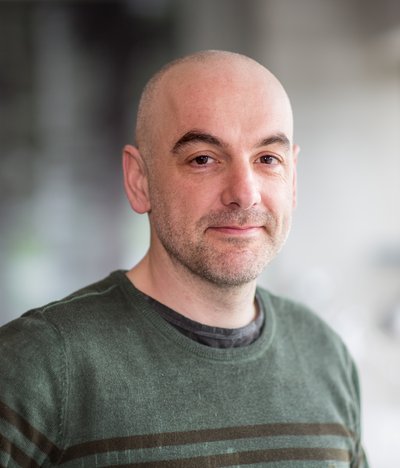Krist Vaesen
Department / Institute
Group

RESEARCH PROFILE
Krist Vaesen is an Associate Professor in the Philosophy of Innovation, at the department Philosophy & Ethics. Krist has worked on a wide range of topics, including technological normativity, the extended mind hypothesis, the epistemology of cognitive artifacts, the cognitive bases of tool use and experimental philosophy. His current research interests include theories of cultural and technological evolution, foundational issues in human origins research, the philosophy of scientific models (e.g., models of innovation), scientific pluralism, science & research policy, and the history of 20th Century Anglo-American philosophy.
Past and failed innovations tell us as much about innovation as contemporary successful ones”
ACADEMIC BACKGROUND
Krist Vaesen studied bioscience engineering (1998) and philosophy (2003) at the University of Leuven, Belgium. He obtained his doctoral from TU/e (2008) with a philosophical essay on artifacts and norms. He was a post-doctoral researcher in the NWO-program “Things that make us smart: cognitive artifacts and extended minds” (2008-2012), and was awarded an excellence grant from TU/e’s Executive Board for his work on this program. In 2012, he became an assistant professor in philosophy at TU/e. He obtained a Vidi-grant in 2014 for the program “Darwinizing culture: the status of cultural evolutionary theory as a science” (2014-2019). Since 2015, he has been a research fellow at the Human Origins Group, Faculty of Archaeology, Leiden University. In 2018, he became an elected member of the Eindhoven Young Academy of Engineering.
He has published in prominent general science journals (Proceedings of the National Academy of Sciences, Behavioral and Brain Sciences, PLoS ONE), biology journals (Philosophical Transactions of the Royal Society B), anthropology journals (Evolutionary Anthropology, Current Anthropology), and philosophy journals (Biology & Philosophy, Philosophy of Science). His research has been covered by various national and international media outlets (Times Higher Education, Volkskrant, Radio 1/VPRO, BNR News Radio, Royal Society’s Chemistry World).
Recent Publications
-
Andrea Kis,Elena M. Tur,Krist Vaesen,Wybo Houkes,Daniël Lakens
Academic Research Values: Conceptualization and Initial Steps of Measure Development
(2023) -
Andrea Kis,Elena M. Tur,Daniël Lakens,Krist Vaesen,Wybo Houkes
Leaving academia: PhD attrition and unhealthy research environments
PLoS ONE (2022) -
Andrea Kis,Elena M. Tur,Daniël Lakens,Krist Vaesen,Wybo Houkes
Leaving academia
(2022) -
Krist Vaesen,Katharine MacDonald,Fulco Scherjon,Eva van Veen,Wil Roebroeks
Reply to McGrew
Proceedings of the National Academy of Sciences of the United States of America (PNAS) (2021) -
Katharine MacDonald,Fulco Scherjon,Eva van Veen,Krist Vaesen,Wil Roebroeks
Middle Pleistocene fire use
Proceedings of the National Academy of Sciences of the United States of America (PNAS) (2021)
Current Educational Activities
Ancillary Activities
No ancillary activities